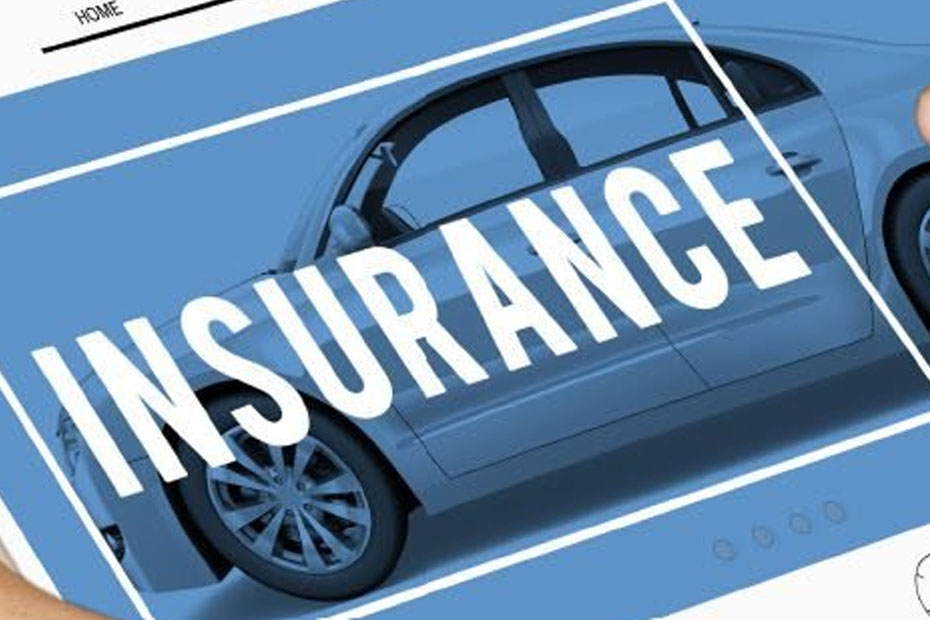Whether you’re an experienced fisherman or a first-time boat owner, understanding your insurance options is an important part of protecting your investment. In this article, we’ll break down everything you need to know about insuring your fishing boat, from common coverage options to tips for getting the best rate. Just like your car or your home, your fishing boat is a valuable asset that deserves to be properly protected. Whether you use your boat for leisurely fishing trips or competitive tournaments, the right insurance policy will give you peace of mind on the water. When it comes to insuring your fishing boat, there are a few different coverage options to consider. The type of coverage you need will depend on the value of your boat, how you use it, and where you keep it docked. Some common coverage options for fishing boats include hull insurance, liability insurance, and engine insurance. To get the best rate on your fishing boat insurance, work with an experienced independent insurance agent who can compare quotes from multiple carriers. Be sure to shop around and compare rates every year to make sure you’re still getting the best deal.
1. Over one million boats registered in the US 2. Many boat owners don’t have insurance 3. There are different types of boat insurance 4. You need to know what coverage you need 5. You need to know what isn’t covered 6. Shopping for boat insurance is different than auto insurance 7. Get multiple quotes to find the best rate
1. Over one million boats registered in the US
It’s no secret that Americans love their boats. In fact, there are over one million boats registered in the United States. Whether it’s for fishing, pleasure, or both, owning a boat is a rewarding experience. But, as with anything of value, insuring your boat is important. Here’s everything you need to know about insuring your fishing boat. The first thing to consider when insuring your boat is the type of insurance you need. There are two main types of boat insurance: liability and hull. Liability insurance covers damages to another boat or person that you are held responsible for. Hull insurance covers physical damage to your boat, no matter who is at fault. It’s important to note that most boat insurance policies require you to have liability insurance. The next thing to think about is the value of your boat. This will help determine the amount of coverage you need. When calculating the value of your boat, be sure to include the value of any accessories, such as fishing equipment, trolling motors, etc. Once you have the value of your boat, you can start shopping around for insurance policies. When shopping for boat insurance, it’s important to compare policies from different companies. Be sure to read the fine print so you understand what is and is not covered. You may also want to consider adding additional coverage, such as towing or emergency service, to your policy. Once you’ve found the right policy for you, it’s time to start enjoying your time on the water. Whether you’re fishing for bass or cruising around the lake, remember to practice safe boating and always wear a life jacket.
2. Many boat owners don’t have insurance
As a boat owner, it’s important to be aware of the risks associated with owning and operating a vessel. Many boat owners don’t have insurance, which can leave them vulnerable to financial loss if their boat is damaged or stolen. There are a few things to consider when deciding whether or not to insure your boat. The first is the value of the boat. If the boat is worth a significant amount of money, it’s worth considering insuring it in case it’s damaged or stolen. The second is the type of boat. If the boat is used for commercial purposes, it’s required by law to be insured. Finally, consider the risks associated with owning and operating a boat. If the boat is kept in a risky location or is used in a dangerous activity, it’s important to have insurance in case something goes wrong. The cost of boat insurance varies depending on the value of the boat and the level of coverage. For a basic policy, expect to pay around $200 per year. For a more comprehensive policy, the cost can be upwards of $1,000 per year. When shopping for boat insurance, be sure to compare the prices and coverage levels of different policies to find the one that’s right for you.
3. There are different types of boat insurance
There are a few different types of boat insurance that you can get. The most common type is called hull insurance, and this covers the boat itself in case of any damage. It will also cover any equipment that is on the boat, such as fishing gear. Another type of insurance is liability insurance, which covers you in case you damage someone else’s property or injure someone while you are operating your boat. You should always check with your insurance company to see what types of coverage they offer before you buy a policy.
4. You need to know what coverage you need
When it comes to insuring your fishing boat, you need to make sure you have the right coverage. There are a few things you need to take into account when deciding what coverage is right for you. The first thing you need to consider is the value of your boat. How much would it cost to replace if it were lost or damaged beyond repair? This is the most important factor in determining how much coverage you need. Next, you need to consider what you use your boat for. If you only use it for recreation, you may not need as much coverage as someone who uses their boat for business. Finally, you need to decide what type of coverage you need. There are two main types of coverage for boats: hull and liability. Hull coverage covers the physical boat, while liability coverage covers any damage or injuries you may cause while operating your boat. The best way to find out how much coverage you need is to speak with an insurance agent who specializes in boat insurance. They will be able to help you assess your needs and find the right policy for you.
5. You need to know what isn’t covered
Your fishing boat insurance policy is a great way to protect your investment and give you peace of mind when you’re out on the water. But it’s important to understand what is and isn’t covered by your policy. Here are five things you need to know about what isn’t covered by your fishing boat insurance policy. 1. Basic Maintenance and Repairs: Your fishing boat insurance policy doesn’t cover basic maintenance and repairs that are needed to keep your boat in good working order. This includes things like replacing the boat’s engine oil, fuel filters, and spark plugs. You’ll need to budget for these expenses yourself. 2. Damages caused by wear and tear: Over time, your boat will suffer from normal wear and tear. This is considered normal wear and tear and isn’t covered by your fishing boat insurance policy. 3. Customization and Upgrades: If you customize your boat or make any upgrades, your fishing boat insurance policy likely won’t cover those changes. That means if you add a custom fishing rod holder or fish finder, you’ll need to pay for any damages or repairs out of your own pocket. 4. Negligence: If you’re negligent and your boat suffers damages, your fishing boat insurance policy won’t cover those damages. For example, if you leave your boat unattended and it’s vandalized, your policy won’t cover the damages. 5. Acts of Nature: Unfortunately, acts of nature are often out of our control and aren’t covered by fishing boat insurance policies. This includes things like hurricanes, floods, and earthquakes. If your boat is damaged by an act of nature, you’ll need to pay for the repairs yourself. Hopefully, this article has cleared up any confusion about what isn’t covered by your fishing boat insurance policy. Remember, it’s always a good idea to familiarize yourself with the terms and conditions of your policy so you know what to expect if you ever need to make a claim.
6. Shopping for boat insurance is different than auto insurance
Shopping for boat insurance is definitely different than shopping for auto insurance, and there are a few things you should keep in mind when you’re looking for coverage for your vessel. Here are six tips to help you get the best possible rates on your boat insurance: 1. Know the value of your boat. In order to get accurate quotes, you’ll need to have a good idea of how much your boat is worth. Many insurers will require an appraisal, so it’s a good idea to get one done before you start shopping around. 2. Be aware of the different types of coverage. There are many different types of boat insurance policies available, and each one offers different coverage. Make sure you understand the differences between them before you start shopping. 3. Choose the right deductible. Your deductible is the amount of money you’ll have to pay out of pocket if you need to make a claim. The higher your deductible, the lower your premium will be. However, you’ll need to make sure you can afford to pay the deductible if you do need to make a claim. 4. Compare quotes from multiple insurers. Not all insurers are created equal, and you’ll want to make sure you’re getting the best possible deal on your boat insurance. The best way to do this is to get quotes from multiple insurers and compare them side by side. 5. Read the fine print. It’s important to read the fine print of any insurance policy you’re considering, as this is where you’ll find all the details of coverage. Make sure you understand everything before you sign on the dotted line. 6. Don’t forget about extras. There are many optional coverages available, such as towing and salvage, that you may want to add to your policy. These coverages can add to the cost of your policy, but they may be worth the price if you need them.
7. Get multiple quotes to find the best rate
When it comes to insurance, it’s always important to compare rates and policy offerings from multiple providers before making a decision. This is especially true when it comes to something as specific as insuring a fishing boat. Since there are a number of things to consider when insuring a fishing boat, it’s important to get quotes from multiple providers so that you can compare and contrast the different options. When getting quotes, be sure to ask about the following: -The size and type of fishing boat you have -Where you plan to use the boat -How often you plan to use the boat -What type of coverage you need By getting multiple quotes, you’ll be able to better understand the different rates and policy offerings available, and ultimately find the best option for your needs.
Fishing is a fun and popular pastime, but it’s important to make sure your boat is properly insured. In order to get the most comprehensive coverage, you’ll need to consider factors like the value of your boat, where you’ll be fishing, and what type of fishing you’ll be doing. An insurance agent who specializes in maritime insurance can help you find the right policy for your needs.






